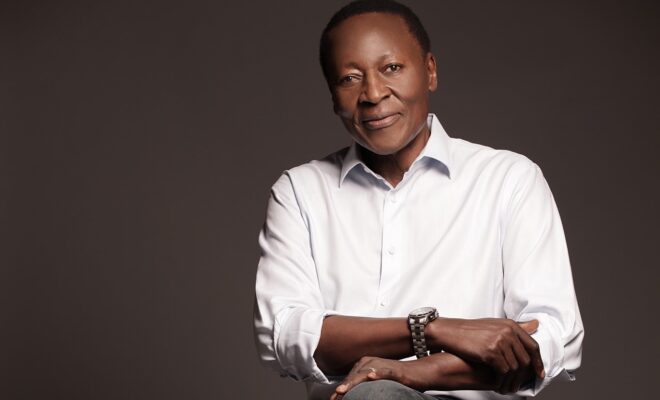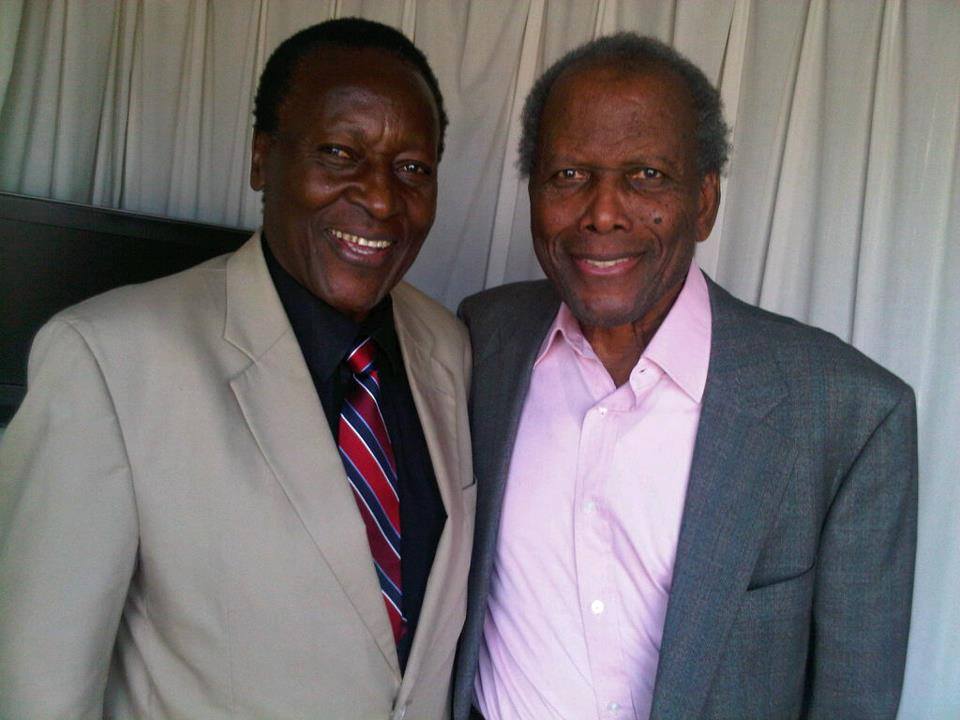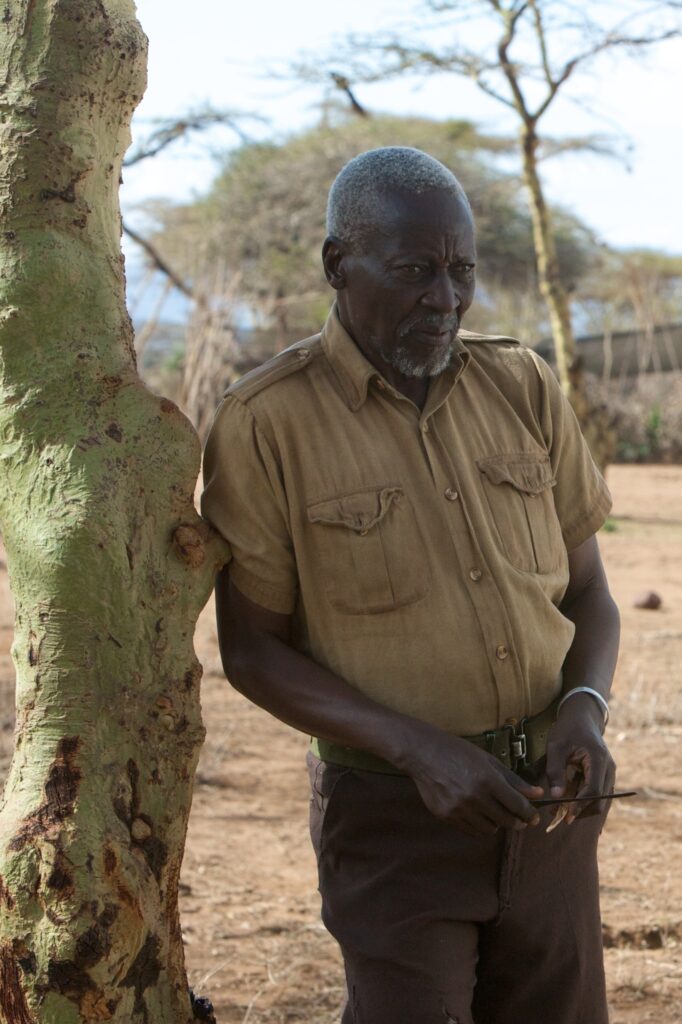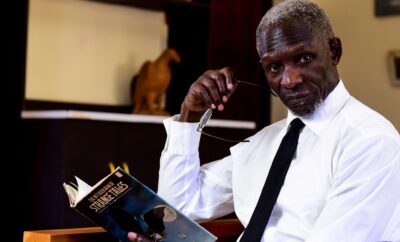
Entertainment
ACTOR OLIVER LITONDO ON FRIENDSHIP WITH KIJANA WAMALWA, JM KARIUKI AND DINING WITH KING CHARLES
Veteran Kenyan actor Oliver Litondo famously known for his role as Kimani Maruge on First Grader which earned him NAACP Image Awards for Outstanding Actor. He spoke to Buzz Central about his friendship with the late deputy president Kijana Wamalwa, politician JM Kariuki and American actor Sidney Poitier. He also talks about dining with royals King Charles III and Princess Ann.
You bagged a lot of supporting roles before the main one for First Grader, what keeps you going?
Being consistent, working hard, loving what I do and never giving up, I don’t know how many times I have told many people I will do the film for free just because I love it. The role in the First Grader was what propelled me internationally, Hollywood as its own clique and to get in, you have to be really good at what you do. Sitting next to Sidney Poitier, and getting a standing ovation alongside Meryl Streep, Martin Scorsese and Sharon Stone really blew me away.
You are good friends with legendary American actor Sidney Poitier, how did you become friends?
I met him when he came to Kenya to shoot the Wilby Conspiracy, where I was one of the actors. We were not best friends but I used to follow him everywhere; he was staying at Norfolk and I used to go there, when he went to play tennis at Nairobi Club I would go there and tell him I would like to talk to him. But he had to go and shoot in Mt Kenya Safari Club, I decided to write him a letter and invited him to my house and he replied but when he finished he had to go.
I remember as Kenyan actors we invited him to the Donovan Maule Theatre. He came with fellow actor Michael Caine and supermodel Iman and we took a picture, when I went to the US in 2012, I told my manager and he organised a meeting with him. He agreed to have lunch at the Four Season Hotel and reserved the whole pool area for us. We talked for over four hours and we gave him the photo that was blown out and since then we talked often. They had approached him to play Maruge in First Grader but he said it was a career killer.
During the shoot of Bush Trackers, you were mistaken to be dead, what happened?
We were going to shoot Bush Trackers which I was casted as star at the Masai Mara, the pick-up point was at the New Stanley but I was late and the rest had left so the producer said, the first team will go then I will go with the second trip. Later we got news that a plane had crashed, when we rushed to Wilson Airport, it was the same plane that I was meant to be in, seven people died including the director, camera man with his assistant, actors and pilot. The next day the newspapers read that Oliver Litondo is died. People back in the village saw the story and were devastated but later they were told, when I went back they had to do prayer cleansing.

You have acted along Kenya actors. Which one do you respect and love?
Raymond Ofula, he is natural he does not force or imitate. In acting you need to study the character and translate it into your own, a lot of actors want to imitate by they need to be themselves not imitate or be someone else. Once you do your part and get it wrong the director is there to assist you.
You were also close friends with the late deputy president Kijana Wamalwa, how did you meet him?
I met the late Wamwala in England; I used to live in Sweden but that summer I went to England, we were at the same party and we started talking only to realise we were two Luhyas in the house. His father was a senator in Kenyatta era, he was living in a flat with a mzungu woman then. I went back to Sweden and when we came back to Kenya we continued with our friendship. We were so tight that if someone did see him with me they would ask where I was. When he became the vice president there were a lot of people around him who didn’t want us to be friends, but he was a very generous man, jovial and very educated.
You were spotted on several occasions in a red sports car, where did it go?
Ha ha ha it was Wamalwa’s car, when King Charles and Princess Ann visited Kenya in the 70s, I was presenting on TV and quite well known so when they invited a few Kenyans to have lunch and swimming with the prince and princess at the British High Commission and I was one of them. To show I was worth going there I borrowed Wamalwa the red Volvo convertible car, we swam with the royal family then we had lunch after. In that car we had a lot of adventures. At one time Wamalwa had a friend with a villa in Watamu and he offered us the house, we drove the sports car all the way to Watamu, he later gave it to a family member.
You also worked as a personal assistant to JM Kariuki, how was it?
I was working for Deutsche Welle (DW) in Germany and he used to listen to my program, when I came back he sent his lawyer to look for me, he wanted someone to write his speeches. I started to work for him and we became close together with Dr Kamundia, a lecturer at the University of Nairobi. We both wrote the famous speech, 10 millionaires living and 10 million beggars. The day he was assassinated I was shooting an Italian TV Series Orzowei, il Figlio Della Savana. The last weekend before he was assassinated I was with him, I left Naivasha on a Saturday afternoon and spend that evening with him at his house, until Sunday afternoon when I went back to Naivasha, he told me Ben Gethi had called him and he was going to meet him that Sunday evening at the Hilton. If I was there we would be together.
Attempts to kill him were tried on several occasions when I was with him. One time we were shot at while leaving the International Casino, second time we were going for a political meeting at Dol Dol in Samburu and someone had blocked the road with a big tree which we crashed, third time was when we had stopped at Tea Hotel in Kericho and someone cut the breaks of his car. JM never liked big hotels, he was loved by both Kenyans and non Kenyans because foreigners were also writing to him asking for money. He was good friends with Mzee Jomo Kenyatta and when he was sent for foreign mission the first person he would see when he came back was president Kenyatta. He had a big farm in Gilgil which we used to go with Edward Clay who was his good friend, this was when he was the second secretary at the British high commission before he came back as an ambassador.

How is it working with your wife?
We met on the set of Bush Trackers. Now she is my manager and publicist but I am also a producer in her own right. There are moments of tension and disagreement but we work together perfectly, we have the same goal and we both love film, for an artiste you will be stupid to disagree if you are doing creative work, we work well.
Kenya actors love drinking their money off, what is your word of advice?
Live within your means don’t have an extra appetite for what you don’t have. It’s a trait that comes from yearning to earn a little more so that you can spend. Spend your money on essentials, drinking is not an essential. As an actor our cheque is not consistent. You earn a lot at once but it will take time before you get the next cheque.
Having been in the Kenyan Film industry for almost five decades, what do you want implemented?
Kenyan actors need to earn royalties from their work and a law needs to be passed for them to earn. The US has Screen Actors Guild (SAG) and they look after your residuals. They track where your movies and series have been shown and send you a cheque, when you die your family still gets the residuals but that does not happen in Kenya.
You are working on a new project Ndovu the Ivory Syndicate, what is it about?
Years ago we did a project about the disappearing African elephant, when we finished, I immediately embarked on researching and writing the script on Ndovu the Ivory Syndicate while in the states. Once the script was finished we figured the film has to be shot in Africa, specifically Kenya, because it has all the scenarios a film of this nature calls for. Kenya is also a representative of other countries that have African elephants and we also wanted to do it here as a way of promoting local talent, so far the film will be employing over 200 youths both cast and crew.
Ndovu the Ivory Syndicate is meant to sensitise the world that the elephant must be saved for our future generation or else our children are going to learn about it the way we did with dinosaurs. Story takes place in a fictional country called Longeti which represents where poaching is rampant. I will be directing and my wife Bella will be producing. 99 percent of actors are from Kenya and expect to see Raymond Ofula, Ken Ambani, Chris Kamau, and Blessing Lung’aho among others, while others are from Hollywood.
Which Kenyan locations should we expect to see?
We will be shooting in different locations like Nairobi National Park, Kakamega Forest, Lake Victoria and Luanda Magere in Kisumu, Isiolo, Naivasha and Masai Mara.
How do we improve the Kenya film industry?
The Kenya film industry is important to us because if people come here from Hollywood to make films it means this country has potential to be its own industry. It hurts us to see films which were meant to be shot in Kenya with a Kenyan plot going to other African countries. The problem is with us because South Africa has created incentives, if we had incentives, it would help the local film maker as well as internationals who want to shoot in Kenya, hence propelling the local industry. People keep complaining about the low standards of production without realising, to produce a film you need a lot of money. If Kenya film makers had a good amount of money they would produce a good film.
Tourism will increase in Kenya, the best PR is through movies, we live in a paradise and people don’t know that. Hollywood is now making African stories so why can’t we make it better, we still have the origin of who we are. This country can make the best film industry, we have the best actors and Kenyan people are so hard working and they believe in their work. To make a good film you need a good story, a good production, know where to sell it and how to sell it. Governments do not make film industries, it is the private sector that builds film industry.









0 comments